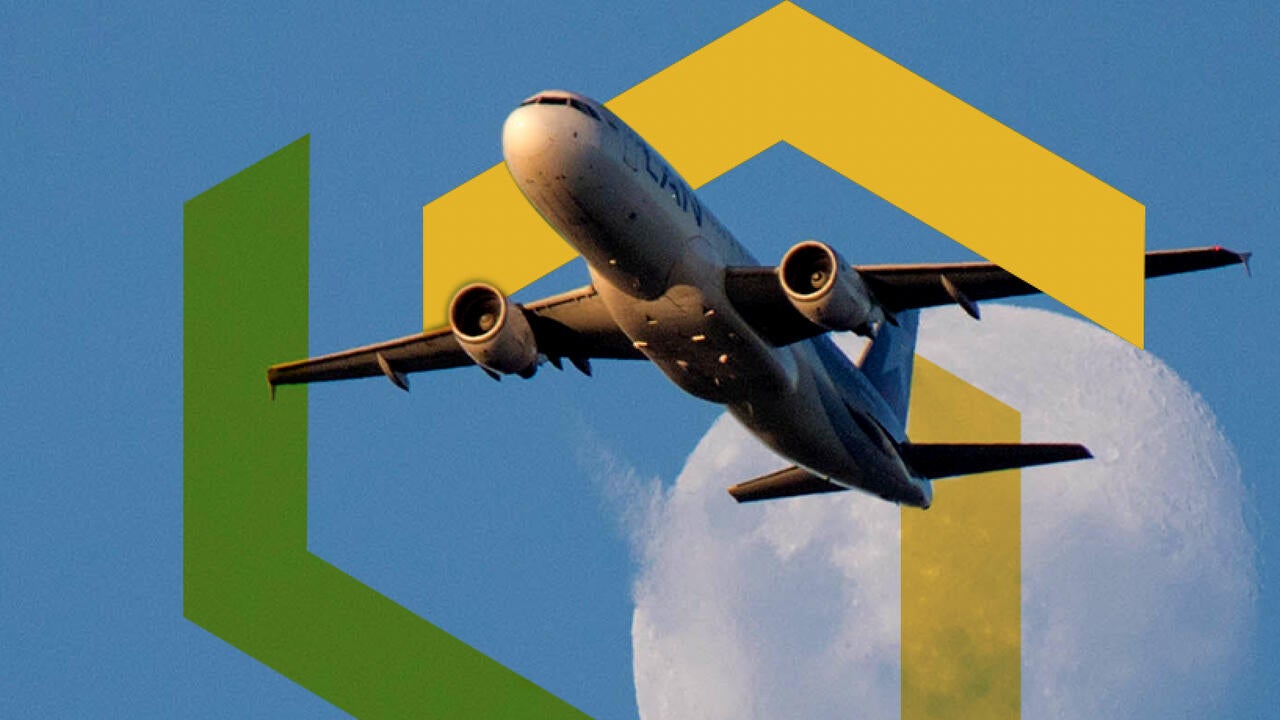
Waterloo to host a summit on aviation and aerospace
Summit will foster interactions aimed at achieving social, economic, and environmental sustainability

Summit will foster interactions aimed at achieving social, economic, and environmental sustainability
By Media RelationsThe University of Waterloo and the Region of Waterloo will host a Sustainable Aeronautics Summit at the Region’s International Airport. The event will profile world-leading sustainable aeronautical research, technology, and education.
The Waterloo Institute for Sustainable Aeronautics (WISA), a university-based research institute, is leading the summit, which takes place on October 5, 2022. The event aims to bring together a unique ecosystem in the region to catalyze sustainable innovations in air transportation.
“We are very excited to work with our partners in the region, across Canada, and internationally to support the air transport sector’s transition to sustainable operations. Facing ongoing personnel, environmental, and technological challenges, sustainable solutions will be critical to a viable future,” said Suzanne Kearns, director of WISA. “One of WISA’s unique strengths is its interdisciplinary approach to aeronautical research and teaching, which includes professors and students from every corner of campus at the University of Waterloo.”
The International Air Transport Association has set a target for airlines around the world to achieve net-zero emissions by 2050.
“Achieving that goal will depend on emerging technologies and practices, which do not yet exist,” Kearns said. “It is critical for our industry to prioritize research, so leading researchers can advance these concepts from the lab to the flight line to meet sustainability goals, which can only be achieved through strategic collaborations fostered at events like this.”
Through academic, industry, and government collaborations, the summit will foster interactions to seek solutions to the most critical industry barriers in achieving social, economic, and environmental sustainability. These include environmental areas such as optimized air navigation, sustainable aviation fuels, hydrogen and electric propulsion. It will also prioritize social sustainability efforts to support a sector that has been facing widespread personnel shortages through aviation training innovations, augmented- and virtual reality, and artificial intelligence-informed instruction.
“Our airport has been growing, with increasing airline traffic as well as student training at the Waterloo Wellington Flight Centre,” said Rod Regier, Commissioner of Planning, Development, and Legislative Services at the Region of Waterloo. “However, we must also prioritize sustainability solutions associated with that growth. Through partnerships with WISA, we believe we have the potential to become a global hub for aeronautical sustainability. Events like this summit help us create new opportunities and innovations to benefit aviation and aerospace sustainability.”
The one-day Sustainable Aeronautics Summit to be held on October 5, 2022, at the Region of Waterloo International Airport’s Operations Centre will include a full educational program with world-leading speakers, including Commander Chris Hadfield, as well as a trade show. Speakers will highlight new and emerging innovations in social, environmental, and economic sustainability in air transportation.
To register, please visit the Sustainable Aeronautics Summit website.

The average lifetime of a phone in Canada is 4.5 years, and we tend to replace these devices for reasons other than breakage. (Photo: GettyImages/Bet Noire)
Read more
The amount of e-waste that Canadians generate will double by the end of this decade, according to new research

(GettyImages/ Rosella De Berti)
Read more
Study reveals changes International Olympic and Paralympic Committees could implement to keep Games viable and safer for athletes

Read more
An ambitious research collaboration with Habitat for Humanity is reimagining home ownership across Waterloo Region and Canada
The University of Waterloo acknowledges that much of our work takes place on the traditional territory of the Neutral, Anishinaabeg, and Haudenosaunee peoples. Our main campus is situated on the Haldimand Tract, the land granted to the Six Nations that includes six miles on each side of the Grand River. Our active work toward reconciliation takes place across our campuses through research, learning, teaching, and community building, and is co-ordinated within the Office of Indigenous Relations.